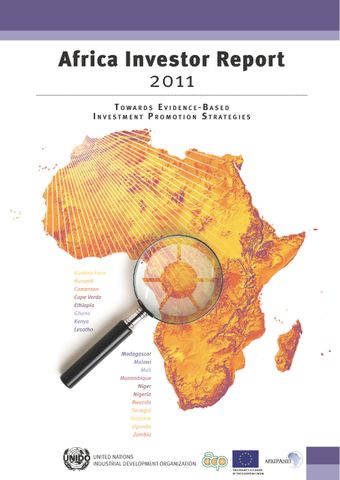- Home
- Books
- Africa Investor Report 2011
- Chapter
Introduction

- Author: United Nations Industrial Development Organization
- Main Title: Africa Investor Report 2011 , pp 39-46
- Publication Date: December 2012
- DOI: https://doi.org/10.18356/02b436f5-en
- Language: English French
In spite of a general global downturn caused by the financial crisis, many African countries are experiencing rapid economic growth and offer a wide array of new investment opportunities, going far beyond simple resource exploitation. As a result, African economies are gearing up for attracting higher levels of foreign direct investments (FDI) into their economies. They see the potential of international investment, in particular FDI, in supplementing domestic savings and, more importantly, in bringing in skills, know-how, technology and, market access. Many laudable reform steps have been undertaken with regard to the improvement of the business climate for foreign investors, in particular those related to political and economic stability, the importance of which has been corroborated through numerous studies on FDI in Africa (UNIDO, 2007). As a result of the changes in the macro-economic and business regulatory frameworks, most African countries have consistently recorded increasing FDI flows from the early 2000’s until the financial crisis, measured in terms of volume of investments. Even during the financial crisis, the contraction in global demand and the resulting financial constraints of large multinationals have much less impacted the volume of FDI inflows into sub-Saharan Africa than in other parts of the world (UNCTAD, 2011).
© United Nations
ISBN (PDF):
9789210553872
Book DOI:
https://doi.org/10.18356/07c88761-en
Related Subject(s):
International Trade and Finance
Sustainable Development Goals:
-
From This Site
/content/books/9789210553872c008dcterms_title,dcterms_subject,pub_keyword-contentType:Journal -contentType:Contributor -contentType:Concept -contentType:Institution105
/content/books/9789210553872c008
dcterms_title,dcterms_subject,pub_keyword
-contentType:Journal -contentType:Contributor -contentType:Concept -contentType:Institution
10
5


